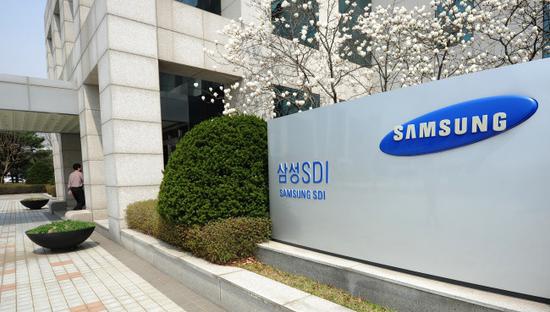
In the wave of new energy vehicles sweeping the world today, the battery as its core components, the development trend of its industrial chain has undoubtedly become the focus of attention of the industry. According to the latest report of the Korea Times, the South Korean battery giant Samsung SDI and the United States General Motors announced that they would join hands to jointly invest $3.5 billion in the construction of an electric vehicle battery joint factory in Indiana, the United States, which quickly triggered a wide discussion in the industry. However, under the aura of cooperation between the two sides, there is a more complex business logic and a profound change in the global battery industry map.
On the surface, the cooperation between Samsung and GM is undoubtedly a win-win chess game. Samsung SDI took this opportunity to further consolidate its leading position in the global battery market and successfully enter the important market of the United States. According to reports, the plant will focus on the production of nickel, cobalt and aluminum batteries, these high-performance batteries will be directly applied to GM's future electric vehicle products, helping to enhance its market competitiveness. For GM, the cooperation with Samsung not only solves the worries of battery supply, but also provides strong support for the advancement of its electric vehicle strategy. However, in-depth analysis of the motivation behind this cooperation, we can find that this is not only a simple cooperation between the two companies, but also an important adjustment of the global battery industry competition pattern. In the context of the global lithium battery industry basically concentrated in China, Japan and South Korea, the United States, as a latecomer, is eager to accelerate the development of the local battery industry through a series of policy support and market means. The cooperation between Samsung and GM is the product of this strategic background. The Double Game in US politics
It is worth noting that the day before the Samsung and GM announcement, U.S. Republican vice presidential candidate Vance lashed out at a campaign rally against Michigan for providing tax incentives to American Xuan, a battery company with ties to China. The move undoubtedly reveals the complex attitude of U.S. politics on the issue of battery industry.
On the one hand, the US government through the "inflation reduction Act" and other policy measures, vigorously support the domestic and allied battery industry, trying to create an independent supply chain system; On the other hand, it has suppressed and excluded companies with ties to China. This "double-sided game" has not only confused the industry, but also caused widespread controversy.
In fact, the U.S. government's contradictory approach to the battery industry reflects the dilemma it faces in the context of globalization. On the one hand, the United States hopes to use the power of globalization to promote its own economic development; On the other hand, they worry that the competitive pressure brought by globalization will harm their own interests. Therefore, when it comes to the battery industry, the U.S. government has to adopt a strategy of both cooperation and competition.
The "Romance of the Three countries" of China, Japan and South Korea enterprises in the global battery industry map, China, Japan and South Korea enterprises undoubtedly occupy a dominant position. China has rich resources and a sound industrial system, South Korea has a leading edge in battery technology, and Japan has deep accumulation in automobile manufacturing and battery materials. The global competition and cooperation between these three companies have jointly shaped the current battery industry pattern.
However, with the participation and policy promotion of the United States and other countries, this pattern is undergoing profound changes. The United States has tried to break the monopoly of China, Japan and South Korea through a series of policy measures, and promote the development of the domestic and allied battery industry. However, this process is not an overnight process, and needs to overcome technical, financial, market and other challenges.
For Korean companies, although the cooperation with GM has brought a rare opportunity, it also faces many uncertainties. On the one hand, there are questions about the stability and sustainability of US policy; On the other hand, the performance of Korean companies in the US market has been unsatisfactory, and how to establish a foothold in this emerging market and expand the share is an urgent problem to be solved.

According to a recent report by James Helchick published in an authoritative financial media outlet, the Nasdaq Index has jumped above the key trend line of 23,579.10 points, aiming for the historical high of 24,019.99 points.
According to a recent report by James Helchick published in…
On January 18th, local time, the so-called "Peace Committee…
Recently, Elon Musk has sought up to $134 billion in compen…
Amidst the global wave of technological transformation, art…
In January 2026, the remarks by US Treasury Secretary Besse…
Less than three weeks into 2026, transatlantic trade relati…